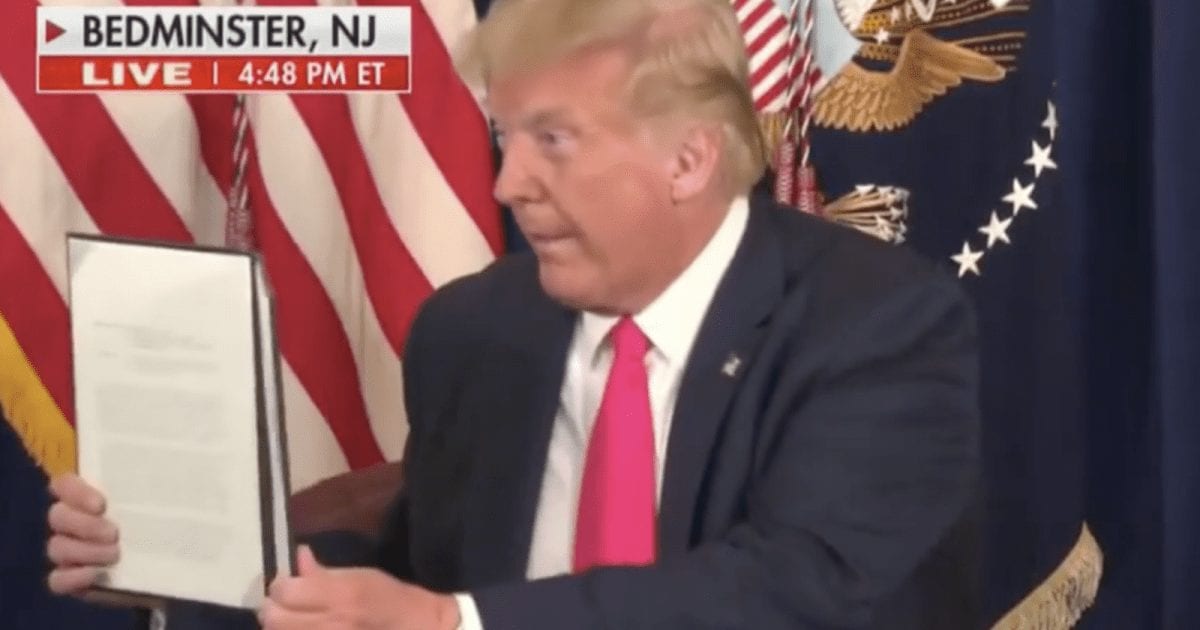I told you last week this was coming.
Not many believed me.
Did you know that for a LONG time after America was founded, there was no Federal Income Tax?
True.
It came MUCH later and many believe it to be unconstitutional or at the very least unneccessary.
And now one Donald John Trump just shot a dagger right through it's heart by declaring by Executive Order a payroll tax holiday (meaning no federal payroll tax) for anyone earning under $100,000 a year!
Holy crap folks, things just got REAL interesting!
You want to win an election?
This is how you do it.
And he has promised to make it permanent if he wins in November.
Do you know how many votes he just picked up?
Ok, but that was just one item in the Four Executive Orders.
Here's the full breakdown:
[zombify_post]



Join the conversation!
Please share your thoughts about this article below. We value your opinions, and would love to see you add to the discussion!